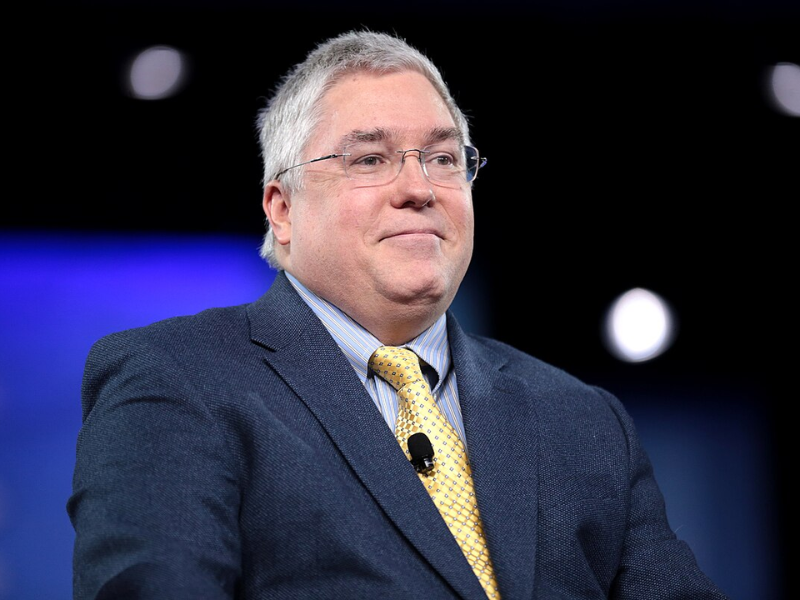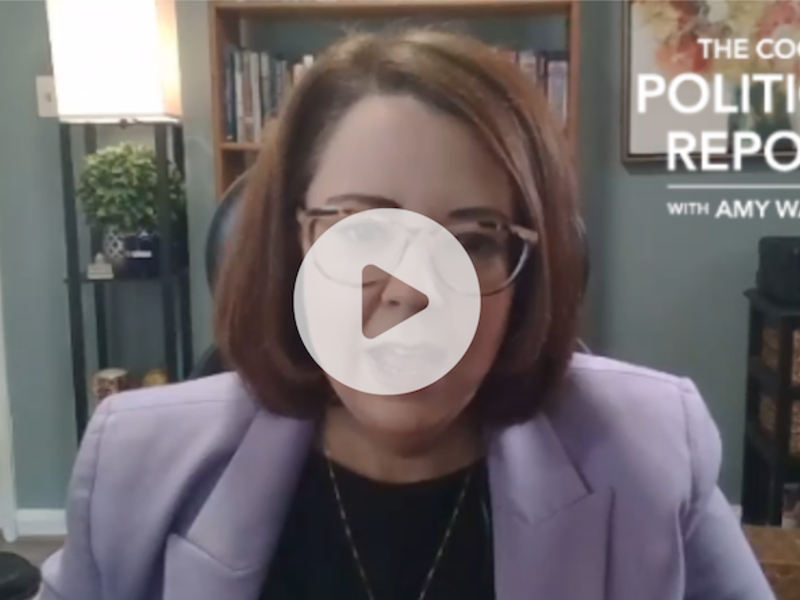
Those of us who've been covering politics for a while (my first presidential campaign at the Cook Political Report was in 2000) have seen a lot of crazy stuff. Hanging chads. Swift Boats. Sarah Palin. Access Hollywood. Wikileaks. But there's one thing we haven't seen: a presidential re-election campaign taking place during a serious and all-consuming crisis.
The 2008 financial crisis, which took place during an open seat election without a sitting incumbent, doesn't count.
I've also never covered a campaign where, less than 100 days before an election, the incumbent was sitting at a dismal 40 percent job approval rating and where at least 80 percent of the country thought that the country was headed in the wrong direction. At any other time in history, we would be in agreement that this president — and his party — will lose in a landslide.
But this is 2020. We are constantly battling 2016 political PTSD ("what if the polls are wrong?"). Trump also has an uncanny ability to survive political challenges that would sink traditional politicians.
We also live in a time of deep and sustained partisanship. In 2018, despite losing the national vote by almost eight points, Republicans were able to (narrowly) hold onto statewide races in Texas, Georgia, Florida and Ohio. And, of course, this partisanship and division is nurtured and exploited by technology like social media. As such, we don't just live in different bubbles; we live in different realities. It's not just that Democrats and Republicans disagree on how well Trump is handling this crisis; they disagree on whether we are currently in a crisis. For example, according to a July Pew Opinion Research poll, just under half (46 percent) of Republicans view coronavirus as a major threat to the health of the public, compared to 67 percent of independents and 85 percent of Democrats.
The once rock-solid grip that the president had on his party seems to be slipping. Talking with pollsters and strategists from both sides this week, it's clear that Trump is suffering not just with Democrats and independents but also with GOP voters. They tell us of polling that shows Trump underwater in districts he carried easily in 2016. One GOP strategist told me that even in heavily Republican districts, Trump's job approval rating among Republicans has dropped 10-20 points. The KFF poll released last week found Trump's overall job approval rating among Republicans dropped 12 points between May and July. On handling coronavirus, the drop in GOP support was an even more dramatic 26 points.
Perhaps understanding he's losing support from his base (or more likely, as the New York Times' Maggie Haberman, Annie Karni, and Sydney Ember wrote this week, as a result of his instinct "to play to his base when campaigning under pressure"), Trump has taken on the role of culture warrior instead of crisis manager.
Whether it's warning suburban (white) Americans of the threats of "low-income housing" (read: Black) being built in their neighborhoods, running ads featuring an older, white woman frantically trying to call 911 as a shadowy figure breaks into her home, or warning of rioters and looters running free in "Biden's America," Trump is hoping that selling fear will help to bring GOPers home.
But as Washington Post columnist and Ethics and Public Policy Center senior fellow Henry Olsen noted, just bringing GOP voters back isn't enough for Trump to win. "Trump and the GOP are losing because independents who might have backed them have turned away in the aftermath of the pandemic and the killing of George Floyd. To win, or just to make it close, the president and his party have to win them back." Winning them back will require Trump to prove he's not only taking this pandemic and this moment in history seriously but is making appreciable progress in getting the economy and life back to normal. The idea that Trump will be able to stay disciplined and focused enough to deliver on this seems unlikely. He will need something outside of his control to happen. Even good news about a vaccine trial or the easing up of COVID outbreaks may not be enough. Strategists who've been conducting polling and focus groups tell us that the voters Trump needs to win have basically tuned out and turned off this president. And, warns a GOP strategist, Biden is a tougher opponent than Trump has ever had to face. "Biden," says this strategist, "is acceptable for anyone with any grievance with Trump."
That brings us back to the question of GOP base voters and whether they can be brought back to supporting not just the president but down-ballot GOP candidates this fall. Strategists I've spoken with in the last week think that the double-digit lead Biden currently holds over Trump will close. But one GOP strategist worries that "even Republican voters are sick of him [Trump]."
Would an October Supreme Court vacancy help rile up the GOP base as it did in 2018? Or will violent protests moving from Portland and Seattle to, say, Omaha and St. Louis be enough to get currently ambivalent GOP voters off the sidelines and into the Trump/GOP column? Perhaps. It won't be enough to save Trump's re-election chances but could be enough to save a GOP wipeout down-ballot.
Image Credit: AP Photo/Alex Brandon











Subscribe Today
Our subscribers have first access to individual race pages for each House, Senate and Governors race, which will include race ratings (each race is rated on a seven-point scale) and a narrative analysis pertaining to that race.